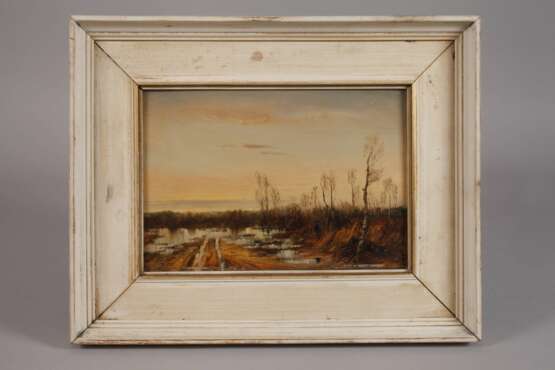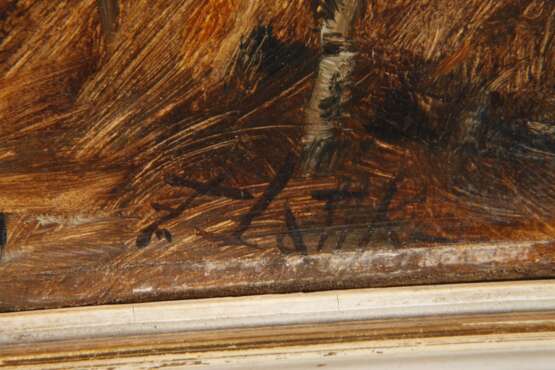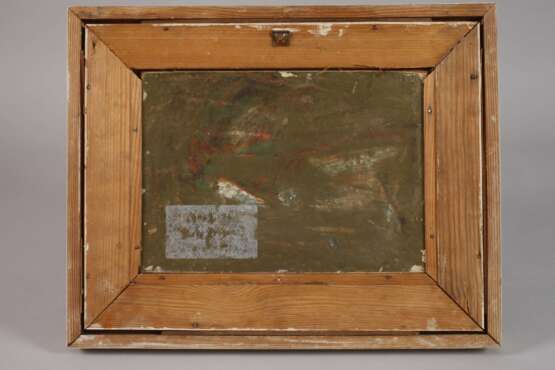ID 1269786
Lot 4579 | Fritz Lattke, Niederlausitzer Moorlandschaft
Künstlerinfo: eigentlich Friedrich Karl Lattke oder niedersorbisch Fryco Latk, sorbisch-dt. Maler, Graphiker, Illustrator, Karikaturist und Comiczeichner (1895 Neuendorf/Gemeinde Teichland bei Cottbus bis 1980 Weimar), ab 1895 Kindheit in Sandow (heute zu Cottbus), auf Fürsprache seines Lehrers Gottfried Herzog ab 1910 Studium mit Stipendium der Stadt Cottbus an der Kunstgewerbeschule Berlin, 1910–18 Militär- und Kriegsdienst sowie 1918–20 Mitglied von Freikorps in Westfalen und Weimar, parallel entstehen Zeichnungen und Illustrationen für Zeitungen in Cottbus, Duisburg und Nürnberg, 1921–29 Studium an der Kunsthochschule Weimar, hier ab 1925 Meisterschüler von Walther Klemm und Alexander Olbricht, 1923 Mitbegründer der Vereinigung sorbischer bildender Künstler, 1923 Aufenthalt in Prag, erfand Anfang der 1930er Jahre mit den "Hanni-, Fritz- und Putzi-Geschichten" einen der ersten deutschen Comics, ab 1940 in Weimar ansässig, unternahm Studienreisen nach Jugoslawien, Italien, regelmäßige Aufenthalte in der Niederlausitz, pflegte Kontakte zu Bogumił Šwjela, Mina Witkojc sowie Měrćin Nowak-Njechorński, 1939–45 Aufenthalt im Spreewald, 1945 Zerstörung seiner Weimarer Wohnung mit Atelier, 1948–54 Mitglied des Arbeitskreises sorbischer bildender Künstler, 1950–52 Dozent an der Berufsschule für Malerhandwerk Buxtehude, 1965 wegen mangelnder sozialistischer Einstellung Ausschluss aus dem Verband Bildender Künstler (VBK) der DDR, 1980 Ehrung mit dem Kunstpreis der Domowina, tätig in Ober-Weimar, Quelle: Vollmer, Eisold "Künstler in der DDR" und Internet.
| Address of auction |
Auktionshaus Mehlis GmbH Hammerstraße 30 08523 Plauen Germany | ||||||||||||||
|---|---|---|---|---|---|---|---|---|---|---|---|---|---|---|---|
| Preview | |||||||||||||||
| Phone | +49(0)3741 221005 | ||||||||||||||
| Fax | 03741 221051 | ||||||||||||||
| Buyer Premium | 28,56% | ||||||||||||||
| Conditions of purchase | Conditions of purchase | ||||||||||||||
| Shipping |
Postal service Courier service pickup by yourself | ||||||||||||||
| Payment methods |
Wire Transfer | ||||||||||||||
| Business hours | Business hours
|






